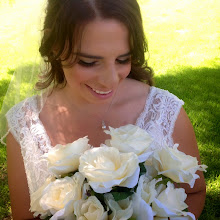Slowly and Progressively: Science can be very interesting to people but when you are learning science if a teacher is going to fast and is just mixing things from left to right it can be hard to follow. So a great strategies is to slow down, I got this strategy from http://www.studyup.com/articles/teaching/teachingstrategiesforscience.html. This website states that teachers need to move slowly when teaching science and make in meaningful when they are implementing the experiences so the children can fully grasp the content of the topic.
Everyday Lives: This same website: http://www.studyup.com/articles/teaching/teachingstrategiesforscience.html also talks about how it would be beneficial for the students if the teacher can integrate science into their student's everyday life by giving them examples that they can related to. This way the student can see how science plays a key role in their everyday lives.
Tie it in: Lastly the same website: http://www.studyup.com/articles/teaching/teachingstrategiesforscience.html discusses how the teacher should be very observant and very careful when presenting the topic of the day. The teachers should be able to gage where the students are with understanding and it might help if the teacher would build on what was learned on the previous day. This way the student can make more of a connection and might learn more when presented in a different way or when it is expanded on.
Alternative Scenarios: This website: http://www.beesburg.com/edtools/glossary.html talks briefly that is would be a good idea of encourage the students to tell you or to write down a different way that the experiment might happen. This would be good because it would force the child to think about what is really happening and what might happen if we alter anything in the process. It will also help engage the teacher to where the student might need more of a help in understanding what is happening. This might be hard for our children who are deaf because it might be hard for them to imagine a different scenario but I think will help and prompting the students might get there and understand what is expected for them, especially if they have enough language and are out of the concrete phrase by Erik Erikson.
Get in there: I believe science in a hands on content area. The website http://www.beesburg.com/edtools/glossary.html expands on this under the term "cooking" It basically says that make it a hands-on lesson and related it to something that the student knows and works with on a frequent basic. The website gives an example of cooking and how it can be used with various subjects: reading cause the student have to read what is next, math because of all the measurements especially if you want to double a recipe, and lastly science because you can see what happens when heat is applied or when an outside force in applied, i.e. stirring or the differences between baking soda and baking power.


My favorite is everyday lives. This is perfect for teaching because it makes a lesson important to the student. If the student is able to see how the lesson relates to their life then they will be more interested in learning and will then be able to understand the concept. Great strategies!
ReplyDelete